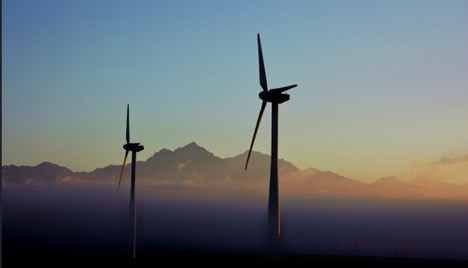A corporate power purchase agreement (“cPPA”) is a long-term contract under which industrial consumers agree to buy some or all of its electricity directly from a renewable energy generator or developer instead of buying from licensed electricity suppliers.[1] cPPAs increase corporate investment in the renewable energy sector while simultaneously providing substantial power consumers an efficacious means to fulfill their sustainability commitments. Notably, cPPAs have seen exponential growth in Southeast Asia over the last year. Scholars attribute this surge to heightened pursuit of decarbonization targets by both corporate and governmental entities, the diminishing costs associated with renewable energy sources, and the evolution of energy regulatory frameworks.
There are several cPPA structures: (a) on-site PPA; (b) direct PPA; and (c) virtual PPA. An on-site PPA, or “behind-the-meter” PPA, is where a renewable asset is built on the consumer’s premises with a direct wire connection to the facility.[2] A direct, or “physical,” PPA is where the renewable asset is located off-site but there is physical delivery of power.[3] A virtual PPA involves the consumer buying power from a utility at local retail price and a separate contract with a renewable installation to settle the difference between the wholesale price and a contractual strike price.[4]
In recent years, governments and corporations have promulgated ambitious decarbonization targets, and their ability to realize these targets has increased due to several compelling factors. First, cPPAs serve as a pivotal instrument in ensuring that procured energy derives from environmentally sustainable sources, thereby enabling these entities to exercise more precise and verifiable control over target attainment. Second, cPPAs offer a heightened degree of financial predictability for utility companies and infrastructure developers. [5]There are no upfront costs and the developer takes direct responsibility for operations and maintenance. By eliminating upfront costs and entrusting developers with direct responsibility for operations and maintenance, these agreements provide a secure and dependable revenue stream.[6] Further, financial security often expedites the deployment of renewable energy projects and enhances access to project finance. Third, the costs associated with liquefied natural gas (“LNG”), oil, and coal have more than doubled since 2019, while the expenses linked to renewable energy have witnessed a notable reduction.[7] By 2022, the cost of renewable power had decreased to a level 46% below the average industrial end-user tariffs.[8] Consequently, many Asian markets are transitioning from high feed-in-tariff (“FiT”) schemes to embrace cPPAs, as they phase out legacy support mechanisms for renewable energy projects.
Across numerous South and Southeast Asian jurisdictions, state-owned entities maintain a monopoly in the domains of power transmission, distribution, wholesale, and retail. Although several nations have begun to authorize off-site PPAs, a significant proportion of East and Southeast Asian countries have yet to follow suit. To illustrate, as per the existing regulatory framework, the utilization of virtual PPAs is not presently permissible in China and Indonesia.[9] Nonetheless, cPPAs have achieved unprecedented levels of adoption in Southeast Asian nations.[10] The predominant share of cPPAs in this region pertains to solar energy, with a notable concentration on rooftop projects.[11] This concentration inherently limits their scale and, consequently, their overall contribution to the renewable cPPA capacity within the region.[12] Taiwan, South Korea, the Philippines and Vietnam have initiated regulatory initiatives aimed at facilitating cPPAs.[13] In a recent development, Vietnam has contemplated legislative reforms to establish a pilot program for direct PPA schemes. Renewable energy generators would have the ability to directly sell electricity to private offtakers through virtual or synthetic PPAs, thus fostering greater flexibility and market access..[14]
Notwithstanding its achievement of an all-time high, this particular region represents a mere 15 percent of the global cPPA market, with the preponderance of this capability originating from the United States.[15] Asia’s cPPA market is characterized by a substantial presence of domestic and regional entities, and the persistence of domestic predominance may serve as a constraint on future expansion.[16] As Southeast Asian nations progress in the development of a regulatory framework conducive to a cPPA-oriented economy, and as the cost competitiveness of renewable energy surpasses that of LNG, coal, and crude oil, cPPA capacity is poised for sustained expansion.
[1] Natasha Luther-Jones, Corporate Power Purchase Agreements (PPAs): What are They?, DLA Piper (Nov. 12, 2019) https://www.dlapiper.com/en-us/insights/publications/2019/11/what-are-corporate-power-purchase-agreements-ppa.
[2] KPMG Asia Pacific, Decarbonization through Renewable Energy: Understanding Asia Pacific’s Corporate Power Purchase Agreement Landscape, KPMG (Nov. 2022), https://assets.kpmg.com/content/dam/kpmg/xx/pdf/2022/10/decarbonization-through-renewable-energy.pdf.
[3] Id.
[4] Id.
[5] Luther-Jones, supra note 1.
[6] Kyeongho Lee, The Power of the PPA: Corporate Renewable Procurement Sets a New Record in Asia Pacific, Wood Mackenzie (Nov. 8, 2022), https://www.woodmac.com/news/opinion/the-power-of-the-ppa-corporate-renewable-procurement-sets-a-new-record-in-asia-pacific/.
[7] Will Norman, Corporate PPAs Hit Record Levels in Asia Pacific – WoodMac, PV Tech (Nov. 9, 2022), https://www.pv-tech.org/corporate-ppas-hit-record-levels-in-asia-pacific-woodmac/.
[8] Lee, supra note 6.
[9] KPMG Asia Pacific, supra note 2.
[10] Norman, supra note 7.
[11] Id.
[12] Id.
[13] KPMG Asia Pacific, supra note 2.
[14] Id.
[15] Norman, supra note 7.
[16] Id.


